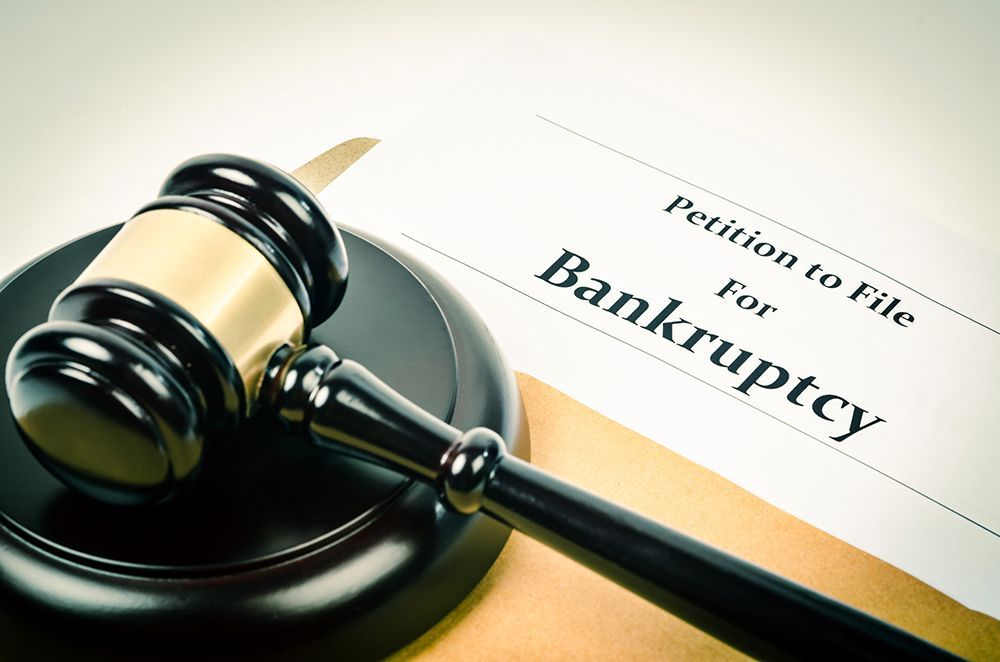If find yourself falling further and further behind on your bills, drowning in a sea of debt, you are not alone. Currently, the minimum monthly payment charged by most credit card companies is based on 2% to 3% of the outstanding balance. The average interest rate on credit card debt according to the Federal Reserve for the summer of 2017 was 12.77%. By paying only the minimum amount each month at the average rate of 12.75%, it would take a debtor 18 years to pay off a $4,000 credit card balance. The total amount that the debtor would pay over this period of time would exceed $21,500!
Many Americans are experiencing hard financial times. Last over 800,000 bankruptcy cases were filed. Financial insolvency is not an insolated problem. Black's Law Dictionary, sixth edition, defines "insolvency" as the inability or lack of means to pay debts. Under bankruptcy law, insolvency is also defined as not being able to pay debts as they fall due. For most people, this means that there isn't enough money to take care of their basic needs and the needs of their family, and still repay creditors. According to a new survey in 2017 by the Center for Financial Services Innovation, 48 percent of Americans have expenses that equal or exceed their income. Among that group, nearly 40 percent have income that fluctuates from month to month, and 86 percent say this volatility has caused them financial stress as a result. In short, nearly half of Americans can’t keep up with their expenses. The cost of heath care, insurance, gasoline, etc. continues to rise, people often find themselves falling further and further behind. Bankruptcy is a way for honest but insolvent people to obtain relief from overwhelming debts problems.
Bankruptcy is a tough issue for most people to discuss. People are often ashamed or afraid to admit that they are experiencing financial problems. An illness, a loss of employment, a divorce – all can lead to financial difficulties. Fortunately Help is available! Under Title 11 of the United States Code, Chapter 7, an individual can obtain a legal discharge from most obligations and a fresh financial start.
Many people believe that they will lose property in a Chapter 7 bankruptcy. This rarely happens in consumer cases. Most if not all of a typical debtor's assets can be protected and legally exempted from forced liquidation in bankruptcy, allowing the debtor to keep their property while obtaining a discharge from oppressive debts. Bankruptcy laws allow an individual to protect specific property by using either the federal bankruptcy exemptions or the various state exemptions. Under both Texas and Federal law, most debtors can fully exempt and protect their assets from liquidation in bankruptcy, including the following property:
House:
house and/or mobile home and real estate used as debtor’s homestead
Car:
One car per debtor; under Texas law, one motor vehicle per licensed driver in the household
Retirement:
Tax Deferred/ERISA qualified retirement such as pensions, 401(k) plans, IRAs
Household Items:
Most furniture, appliances, and electronic items
Tools-Of-Trade:
Most tools, equipment, and specialty machinery essential to a trade or occupation.
(This list is by no means exclusive. Certain jurisdictional time limits, acreage limitations on land, and monetary limitations on value may apply under both state and federal law. .)
For more information about how a Chapter 7 bankruptcy can help you and your family obtain financial freedom, peace of mind, and a chance at a new beginning, please contact the BLACKWELL LAW FIRM LLP for a free consultation at (806) 331-3130. (Texas Residents Only)
We are a debt relief agency. We help people file for bankruptcy relief.
(The viewing of this material does not establish an attorney-client relationship. The material on this web-site is general in nature and is provided for informational purposes only. None of this information is intended, nor should it be construed as legal advice. For legal advice and assistance, please speak with a licensed legal professional. Troy Blackwell is licensed by the Supreme Court of Texas, but not certified by the Texas Board of Legal Specialization, nor is he licensed to practice law in any other states. This site and the information contained herein may constitute advertising as defined by the Texas Disciplinary Rules of Professional Conduct. The Blackwell Law Firm LLP is not responsible for the content on any linked-sites and/or off-sites. The materials and information on this site are the property of the Blackwell Law Firm LLP and may not be used without the express written permission of the Blackwell Law Firm LLP) "© Copyright 2017
– Blackwell Law Firm LLP"

